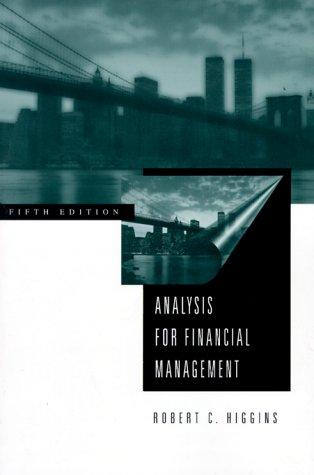WORKING CAPITAL Owen suspects that KP's inventory is excessive. He stated. "Capital is unneces- sarily tied up in Inventory." Tessa's position is that a large inventory is necessary to provide speedy delivery to customers. She replied. "Our customers expect quick service when a game is in demand, and a large inventory helps us to 226 Koala Fun provide it." Owen is skeptical of this argument and wonders if there isn't a more efficient way of providing good service. He also questions Tessa's credit standards and collection procedures, and believes that Tessa has been quite generous in granting payment extensions to customers. At one point, nearly 45 percent of the company's receivables were more than 90 days overdue. Furthermore, Tessa would continue to accept and ship orders to these resellers even when it was clear that their ability to pay was marginal. Tessa's position is that she doesn't want to lose sales and that the difficult times are only temporary. Owen wonders about the wisdom of passing up trade discounts. Vendors frequently offer KF terms of 1%/10, net 30. That is, KP receives a 1% percent discount If a bill is paid in 10 days and in any event full payment is expected within 30 days. Tessa rarely takes these discounts because she wants to hold onto our cash as long as possible." She also notes that the discount isn't espe- cially generous and 98% percent of the bill must still be paid." FINAL THOUGHTS Despite all of Owen's concerns, however, the relationship between the two partners has been relatively smooth over the years. And he admits that he may be unduly critical of Tessa's management decisions. "After all," he concedes, "she seems to have reasons for what she does, and we have never lost money since we started, which is an impressive record, really, for a firm in our business." Owen has discussed with two advisors the possibility of selling his half of the firm. Since KF is not publicly traded, the market value of the company's stock must be estimated. The consultants believe that is worth between $35 and S40 per sbare, figures that appear reasonable to Owen. EXHIBIT C2.1 KF Income Statements: 2012-2013 2012 Sales $6,572,800 Cost of goods sold 4,896,700 Gross margin $ 1,676,100 Administrative 1,281,700 Depreciation 72,000 Earnings before interest and taxes $ 322,400 Interest 37,900 Earnings before taxes $ 284,500 Taxes (at 40%) 113,800 Net income $ 170,700 2013 $7,811,500 5,866,200 $1,945,300 1,492,200 86,000 $ 367,100 31,600 $ 335,500 134,200 $ 201,300 EXHIBIT C2.2 KF Balance Sheets: 2012-2013 2012 2013 Assets Cash Accounts receivable Inventory Other current Current assets Gross fixed assets Accumulated depreciation Net fixed assets Total assets Liabilities and Net Worth Accounts payable Notes payable Accruals Current liabilities Long-term debt Common stock (62,000 shares outstanding) Retained earnings Total liabilities and net worth $ 328,000 $1,004,200 $ 765,400 $ 39,200 $2,136,800 $ 372,200 ($ 147,900) $ 224,300 $ 2,361,100 $ 244,000 $1,106,600 $1,222,300 $ 46,800 $ 2,619,700 $493,600 ($ 233,800) $ 259,800 $2,879,500 $ 345,700 $ 63,200 $ 164,300 $ 573,200 $ 316,000 $948,000 $ 524,000 $2,361,200 su $ 544,800 $ 63,200 $ 156,100 $ 764,100 $ 252,800 $ 1,137,600 $ 725,000 $2,879,500 228 Koala Fun EXHIBIT C2.3 Financial Ratios for the Electronic Arts Industry Industry Averages* Current times) 2.6/1.71.3 Quick (times) 1.6/0.8/0.6 Debt % 41/57/71 Times interest earned (times) 7.4/3.9/1.3 Inventory turnover (times) 8.1/6,0/3.5 Total asset turnover (times) 3.5/2.8/2.0 Average collection period (days) 41/50/68 Return on equity % 27.3/19.5/7.8 Third quartile, median, and first quartile results Using the information that vendors offer in the way of trade credit in the case study (pp 226), calculate the cost of Koala's trade credit. Show all calculations










